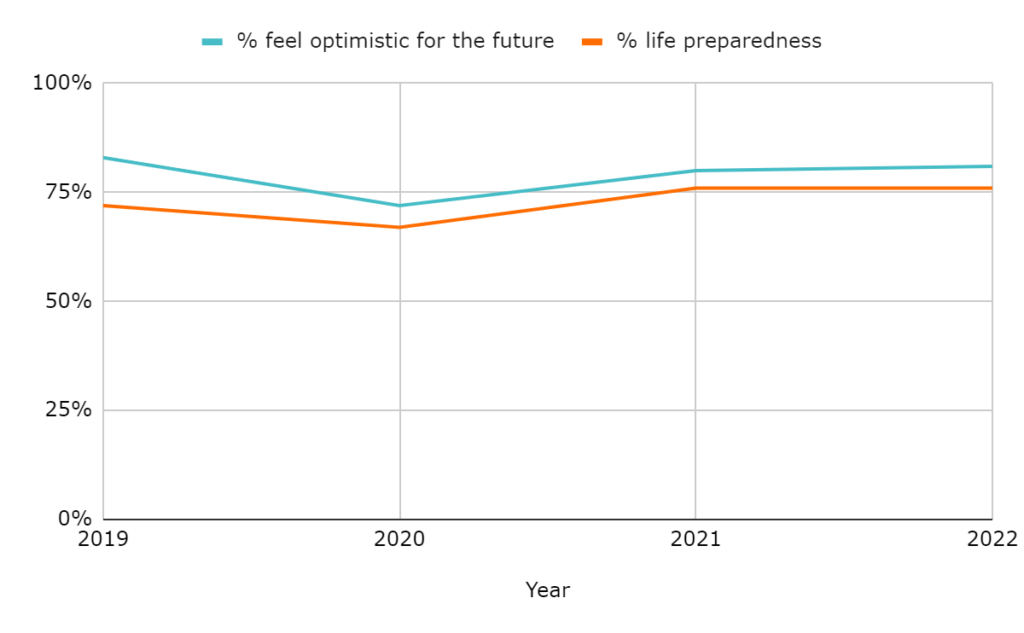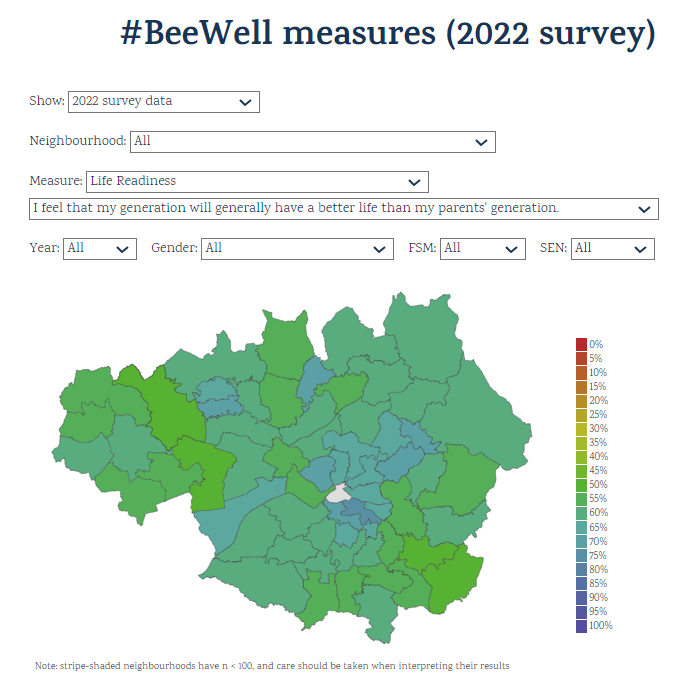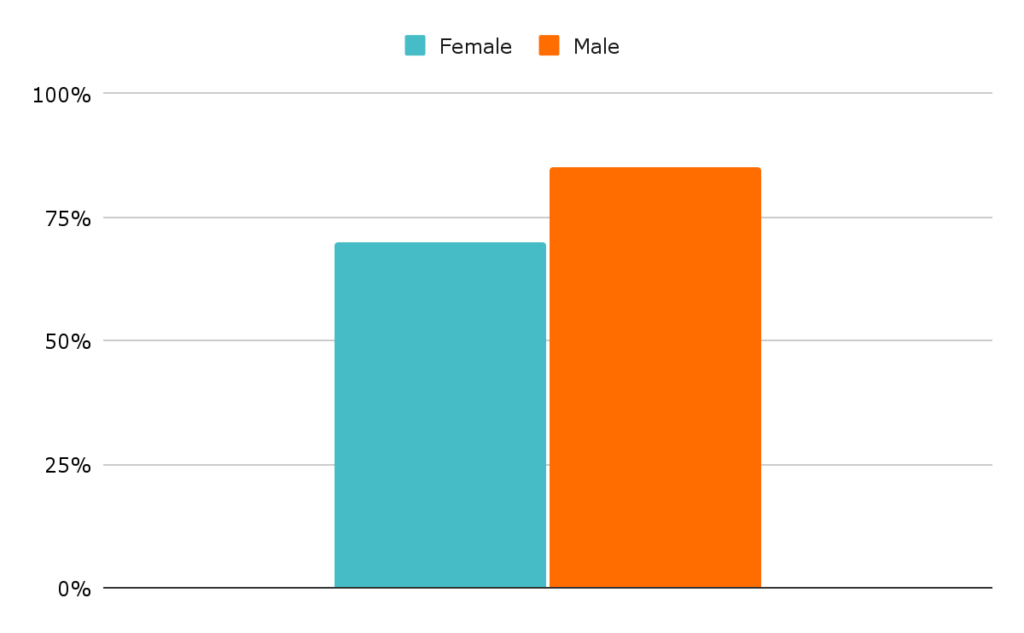Conceptualising and measuring hope is continuing to gain attention and importance, with the Office for National Statistics adding ‘Hope for the future’ as a proposed new measure on the updated UK Measures of National Wellbeing framework.
Here we discuss why hope matters, and explore an example of the measurement of hope and optimism in action through the #BeeWell survey of secondary school pupils across Greater Manchester.
Why hope matters
Hope is characterised by positive feelings about the future; it is trusting one’s ability and motivation to goal-set and find multiple ways to get there; it is having the will and agency to live.
How hopeful we feel and our view of risks, challenges, and the future has a role in developing long-term resilience and coping with changes. For example, a 2021 network analysis exploring how subjective feelings of wellbeing are related to individual, community and place characteristics found that civic agency – whether individuals felt they could influence decisions made about their neighbourhood – is positively associated with the WEMWBs item ‘I’ve been feeling optimistic about the future’.
The absence of hope – despair – has been linked to mental health problems and an increase in mortality, as well as vulnerability to misinformation.
Measuring the concept of hope is an important part of understanding what matters to wellbeing, and therefore how to improve it. It may be key to shifting the dial from post-covid recovery to an optimistic future, supporting Levelling-Up and promoting good mental health for all ages.
#BeeWell: A case study of life readiness and young people
The second annual #The BeeWell survey was delivered to 35,000 young people in Years 9 and 10 in over 150 schools during Autumn 2022. It includes questionnaire items from the Greater Manchester Combined Authority’s Life Readiness Survey (LRS), focusing on young people’s optimism for the future, skills, careers’ education and post-Year 11 plans.
These Life Readiness findings have been added to the #BeeWell neighbourhood dashboard, an interactive dashboard that enables users to explore the data, collected in schools and made available by neighbourhood for all sectors, communities and families to use by.
Key insights
In 2022, 81% of Year 10 pupils responded agree/strongly agree that they have hope and feel optimistic for their future, compared to 83% in 2019, 72% in 2020, and 80% in 2021.
76% of Year 10 pupils think they will have the skills and knowledge they need to be prepared for life, the same as in 2021, and up from 72% in 2019 and 67% in 2020.
In combination, this data appears to show a clear dip due to the pandemic and since then there has been a trend towards things slowly getting back to pre pandemic levels (figure 1).

Figure 1: Percentage of Year 10 pupils 2019-2022 who agree/strongly agree that they have hope and feel optimistic for their future, and think they will have the skills and knowledge they need to be prepared for life.
60% of all young people surveyed agree/strongly agree that they will have a better life than their parents’ generation. This varies by 25 percentage points across Greater Manchester neighbourhoods (figure 2).

Figure 2: Map showing percentage of young people in each neighbourhood with responses of: Agree/Strongly Agree, that they will have a better life than their parents’ generation taken from #BeeWell neighbourhood dashboard.
70% of female Year 10 students agree/strongly agree that they are confident in their skills and abilities, compared to 85% of male students (figure 3).

Figure 3: The percentage of Year 10 pupils who agree/strongly agree they are confident in their skills and abilities by gender.
The year-on-year analysis of Year 10 data helps us to understand the impact of the pandemic on young people’s hope, optimism, and readiness for life over time. Although it should be noted that the original LRS sample was much smaller, completed by around 6,000 Year 10 students from 100 schools between 2018 and 2020. Resulting trends should be treated with caution.
Explore further findings in the #BeeWell Brief: Life Readiness.
The Power of Hope
“Economists are beginning to understand how aspiration shapes life outcomes.” – Carol Graham, author of The Power of Hope: How the Science of Well-Being Can Save Us from Despair.
To continue our exploration of the concept and measurement of hope, we’ll be in conversation with wellbeing expert, economist and author, Carol Graham on Wednesday 1 November, 18:00 – 19:00.
The evening will discuss the future of wellbeing measurement and what society can do to promote hope and reduce misery. Join us by reserving a ticket for the free online event.
